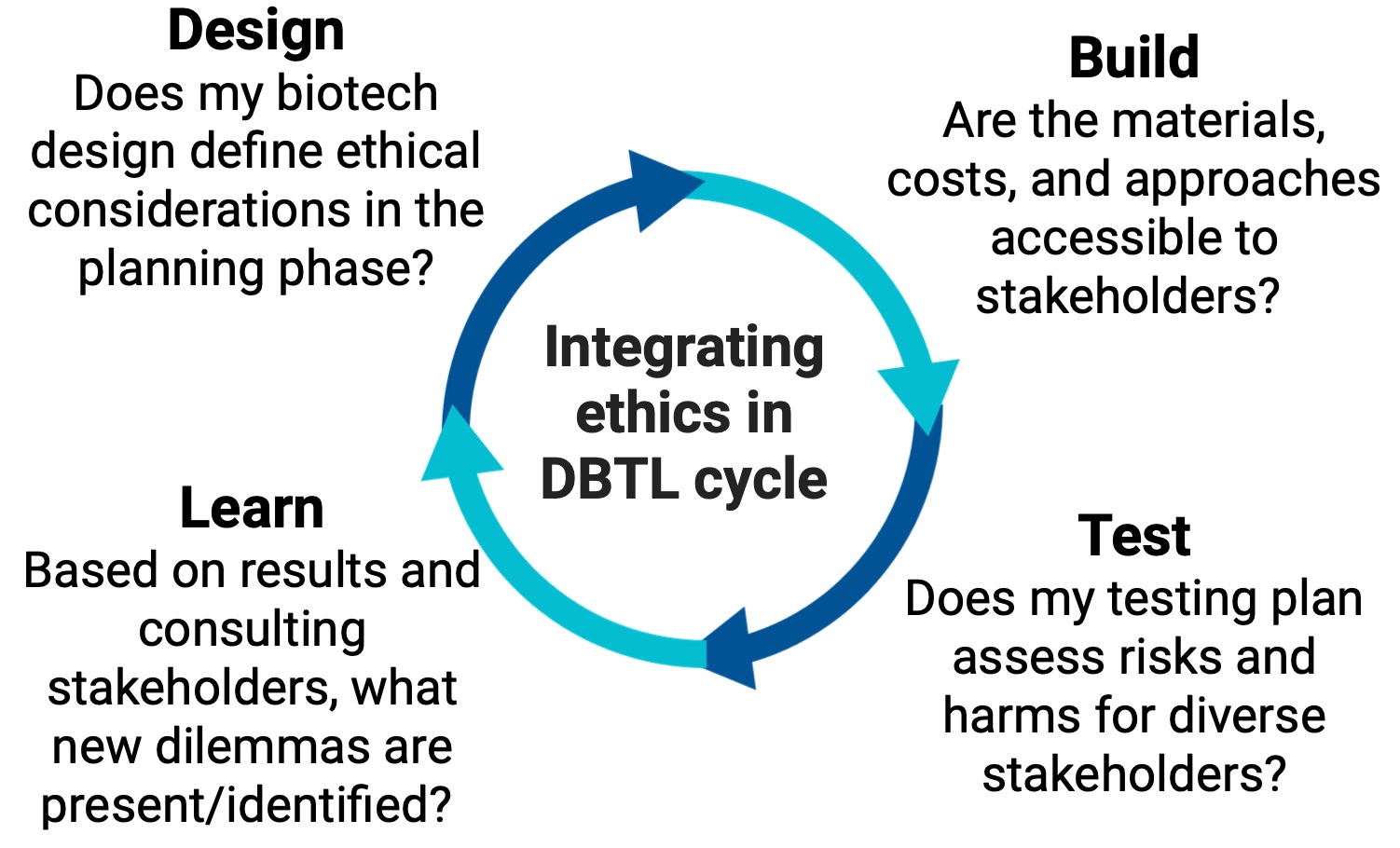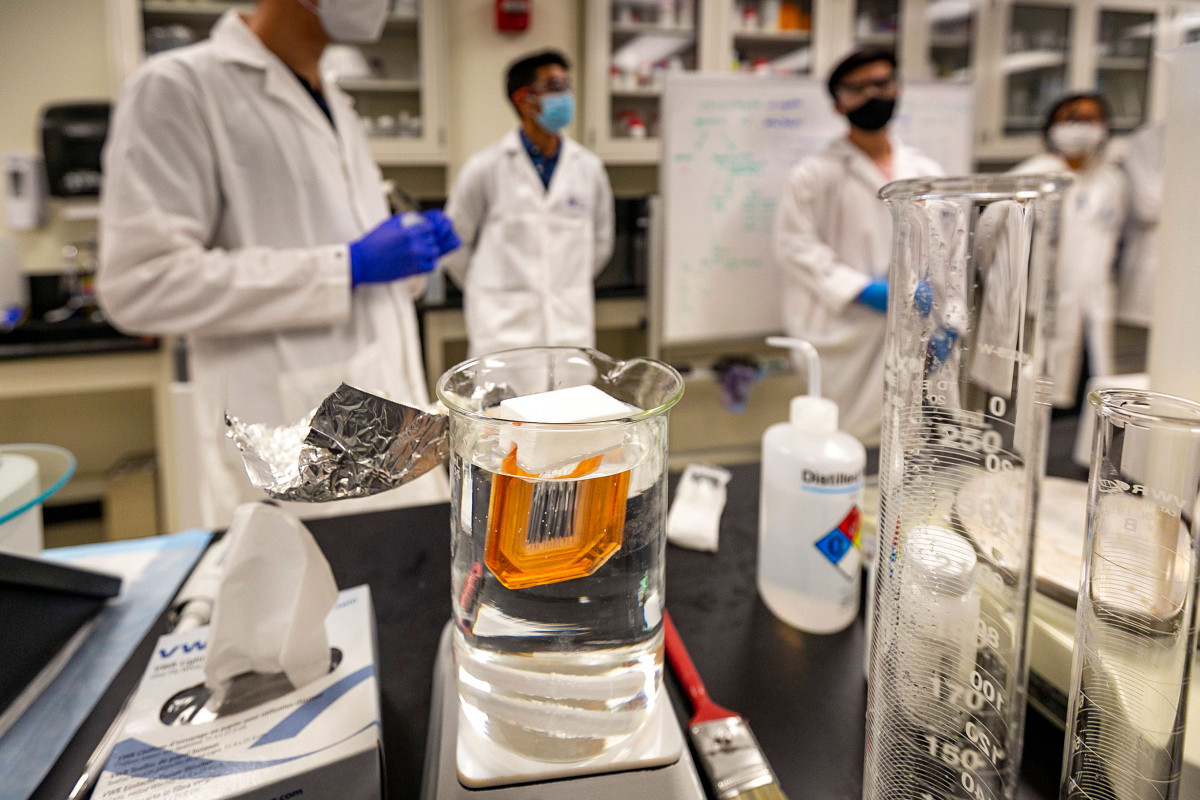We are researching the advances in biotechnology education that empowers students through experiential learning, ethical reasoning, and technological fluency. Our work addresses the evolving needs of the biotech landscape by focusing on four interconnected educational principles:
Experiential Education in Biotechnology
We design and assess hands-on learning programs that immerse students in real-world biotechnology applications, including through courses and co-curricular experiences such as iGEM. Through design-based learning, students engage directly with the Design-Build-Test-Learn (DBTL) cycle, building both technical competence and scientific confidence. Our research investigates how self-efficacy and expectancy-value beliefs shape student outcomes in these experiential contexts.
Integrating Emerging Biotechnologies
As gene and cell therapies redefine modern medicine, our educational efforts incorporate cutting-edge advances into student learning experiences. By aligning instructional content with current innovations in therapeutic biotechnology, we help students develop relevant, future-ready skills and foster a sense of purpose and belonging in the field.
Laboratory Automation Education
With the increasing role of automation in life sciences, we emphasize the need for lab automation education—teaching students how to design, operate, and interpret automated workflows. In collaboration with the Chory Lab, we are launching the Laboratory Automation in Bio(medical) Engineering Education (LABEEs) and researching the roles of technology acceptance on education needs.
Ethical design integration in Biotechnology DBTL
We also explore how ethical reasoning can be embedded within each stage of the DBTL cycle, ensuring that students consider societal impacts alongside scientific design. With emergent biotechnologies, particular focus on stakeholder analyses and an awareness of future possibilities for these tools become important for responsible innovation.
Image
Through these initiatives, BEETL is not only shaping the next generation of biotechnology leaders but also generating research insights into how learning environments influence student attitudes, values, and ethical orientations in biotechnology education.
